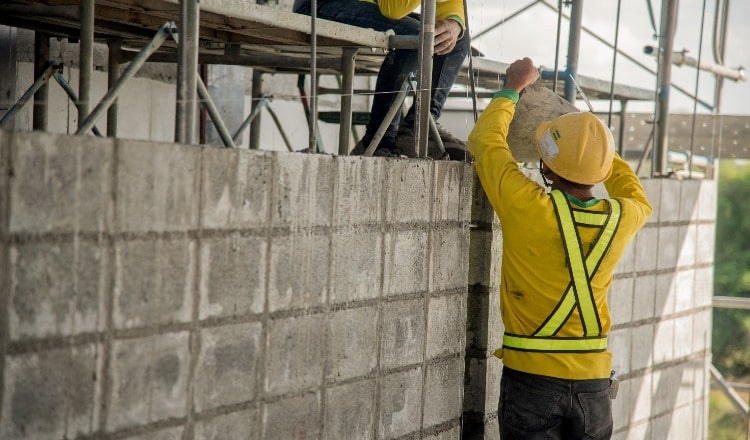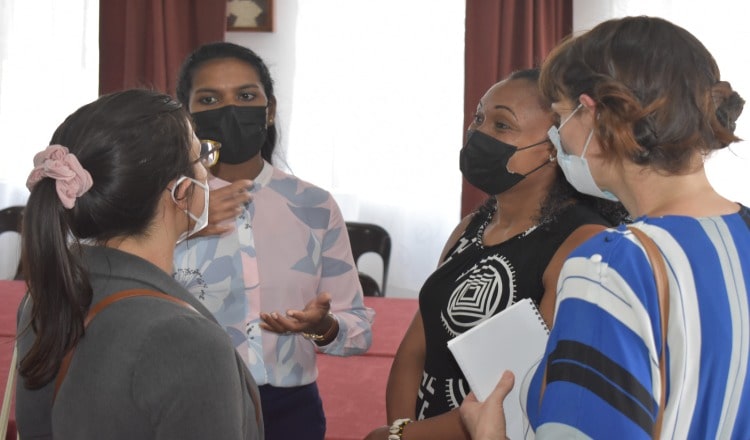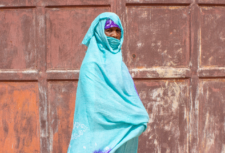25 July 2022
In our latest blog, Cristina Patriarca shares the conclusions from a 3-year project working to improve access to remedy for migrant workers.

Modern slavery in supply chains is a widespread, world-wide problem. Regardless of international labour standards and frameworks, “low-skilled” migrant workers are particularly vulnerable to exploitation and abuses of their rights. Their vulnerability to modern slavery risks is due to specific factors that include low literacy levels, poverty, lack of access to information and to support networks.
Many people embark on migration journeys that lead them to situations of debt bondage or forced labour, as recruiting agents may deceive them by promising false job opportunities and ask for the payment of high recruitment fees. Many migrant workers may fear reprisal by their employer or authorities, the potential loss of income and inability to support their families back home, the risk of incarceration or deportation due to their migration status. For these, and other reasons, migrant workers often do not denounce modern slavery conditions.
Businesses must ensure that violations of workers’ rights, including those of migrant workers, are respected in their operations, subsidiaries and supply chains, in line with the United Nations Guiding Principles on Business and Human Rights (UNGPs). To support these efforts, and with a specific focus to improve migrant workers’ ability to claim their rights and access remedy, over the past three years Anti-Slavery International partnered with a local and international trade union, civil society organisations, and a global brand (ASOS) to reduce the vulnerability of migrant workers to modern slavery.
The project, funded by the UK Home Office Modern Slavery Innovation Fund (MSIF), started in April 2019 and ended in May 2022. It specifically targeted workers from Madagascar and Bangladesh migrating for work to Mauritius, a labour migration corridor where instances of modern slavery had been identified in industries relevant for the UK market.
With the support of the Bangladeshi NGO Ovibashi Karmi Unnayan Program (OKUP) and the Malagasy NGO Etudes Conseils FORMation Entrepreneuriat (ECFORME), the project addressed vulnerabilities in migrant workers’ countries of origin. In Madagascar, migrant workers received pre-departure orientation training on migration risks and ways to keep themselves safe, whilst in Bangladesh communities were sensitised to the challenges of working abroad. Recruitment agents were also engaged with to promote greater protection of migrant workers’ rights.
Our local partner in Bangladesh also trained government officials on the toolkit and is in the process of signing a Memorandum of Understanding with the Bureau of Manpower, Employment and Training (BMET), a governmental agency, to use the toolkit to officially train Mauritius-bound migrant workers at a technical training centre in Dhaka.

In Mauritius, the project established a Migrant Resource Centre (MRC), belatedly inaugurated in February 2022, where migrant workers can receive information on their rights, including through monthly awareness raising sessions, accurate information and advice on their circumstances, and support to access remedy whenever their rights were violated.
The MRC was created with the support of Mauritian trade union Confédération des Travailleurs des Secteurs Publique et Privé (CTSP), the local IndustriAll Global Union affiliate, and ASOS as a free-of-charge service for migrant workers, accessible for them in their native languages. Since the start of its operations in 2020, the MRC delivered awareness raising sessions to over 1,000 migrant workers and handled 120 employment-related grievances, affecting over 2,000 workers. 63% of these grievances are now resolved. Common grievances involved wage theft, the withholding of employees’ contractual documents or personal documents by the employer, inadequate living conditions in dormitories and, following the COVID-19 pandemic, refusal to repatriate employees.
The engagement of ASOS in the project contributed to amplifying its impact. Firstly, ASOS supported the MRC by promptly resolving grievances raised by workers in its own supply chain, and thus improving access to remedy for migrant workers. It also worked together with Anti-Slavery International to advocate for better protection of migrant workers’ rights in Mauritius, including by co-hosting two workshops and a roundtable event with global brands, Mauritian suppliers and other key stakeholders.
In addition, ASOS funded the development of the Just Good Work (JGW) Mauritius app, an easily accessible and informative app piloted with migrant workers and available in English, French, Bangla and Malagasy that provides migrant workers with an overview of life and work in Mauritius, as well as key contact points where to reach out to for help, including to contact the MRC. A short video introducing the JGW app, developed also in Bangla and Malagasy, will be disseminated by local partners among their networks to reach as many migrant workers as possible.
Whilst the project has now come to an end, the efforts and commitment of project partners is not ending here. CTSP, ECFORME and OKUP are committed to building on project achievements and continue collaborating with one another for the improvement of migrant workers’ rights protection. The MRC will also continue operating and provide support to migrant workers through the local trade union CTSP.
ASOS and Anti-Slavery International will continue working together in the framework of our ‘critical-friend’ relationship and Anti-Slavery International will continue working towards building new relationships with global brands, as the successes of this project will hopefully inspire more to engage in unusual alliances to improve access to remedy for migrant workers in supply chains and the protection of migrant workers’ rights.
To this end, in June 2022, Anti-Slavery International joined ASOS at the Global Fashion Summit in Denmark. In a side-event panel, looking at the collaboration under this project, they outlined the opportunities and challenges arising from unusual alliances. They particularly stressed how multi-stakeholder interventions that bring to the table different, but equally important actors, are essential to tackle modern slavery issues holistically, addressing their root causes, and driving change at scale.
It is in fact by bringing together a global brand, a local trade union and grassroots organisations that this project was able to address difficult conversations constructively, with a range of actors that held different viewpoints but were all determined to improve existing structures. Whilst engagement brought some challenges, these also offered an opportunity to better understand barriers to greater protection of migrant workers.
Building on these learnings, approaches and solutions were adapted where possible, to enable the project to achieve sustainable successes, which will continue to impact positively migrant workers in Mauritius, Bangladesh and Madagascar, beyond the project’s conclusion.





